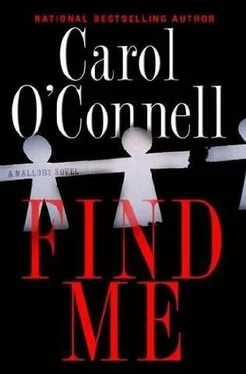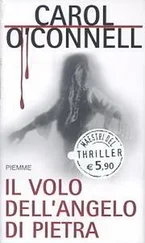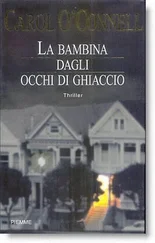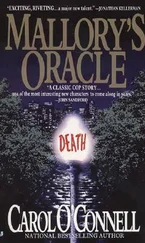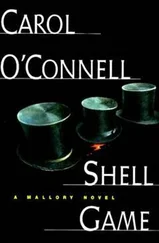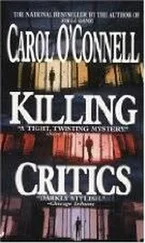And Riker did. Everything was clear, for Mallory’s s hort note to Savannah had demanded the letters, as if she had a right to them. The kid had wanted her letters. “They were written by Mallory’s father.”
“Seems logical, doesn’t it? But more important,” said Charles, “the love letters were written to a woman who was not Mallory’s mother.”
That would explain a lot, given the compulsive way that Mallory had always kept track of every transgression, real and imagined. “So Mallory’s father abandoned her mother to run off with Savannah Sirus.” One more cheat, another old score to settle. And now, in Riker’s o w n personal autopsy of suspicious suicide, he had motive.
Mallory, what did you do to that woman?
“The first time I met your dad, he was a sixteen-year-old car thief out of California,” said Ray of Ray’s Autobody Shop. “Didn’t e ven have a driver’s license.” Mallory’s host sat down at a long wooden table stained with rings from a thousand coffee cups. “Well, not a car thief-I’m exaggerating. I’m sure he owned that old Volkswagen-even if he wasn’t legally old enough to drive it. But he tried to steal the parts he needed to keep it running.”
Mallory looked around the kitchen, aching to put it in order. This was the mess of a man who lived alone, though finger paintings and photographs of young grandchildren were stuck to the refrigerator with cartoon magnets. The washing machine in the corner was merely a repository for dirty laundry that even this impossibly grimy man would no longer wear. Here and there, she could make out the layer of years when his wife was still living. Signs of her were in the rosebud pattern of the curtains. The teacups were ornate. Judging by the pile of dishes in the sink, he used the good china every day-because it reminded him of his wife. She looked at the worn pattern on her spoon-real silver, and silverware was a tradi- tional wedding gift. The kitchen called up memories of her foster father’s house in the years following the death of Helen, the woman who had raised her from the age of ten.
Ray Adler poured hot coffee into her cup, then set a carton of milk on the table alongside a five-pound bag of sugar with another silver spoon sticking out of the tear in the top. “Now the last time Peyton came through, he was heading the other way, back to the West Coast, and it was ten years later. He had two college degrees and he was working on a third. That was a predictable outcome. Peyton was one smart kid.”
Mallory drank her coffee black and listened to the story of Ray’s father catching the young thief in the act of stealing engine parts by dead of night. This might have been her own story, but Lou Markowitz had caught her robbing a Jaguar when she was a child-a more precocious thief than Peyton Hale.
“My father didn’t t u rn him in,” said Ray. “Dad didn’t w ant to mess up a kid’s whole life for thirty dollars’ worth of parts. So he made Peyton work for what he stole. Well, it was like going back to school for my dad-and me, too. That boy could make a busted carburetor rise again from the dead and bark at the moon. In other words-the boy had a way with cars. All that summer, old junkers rolled into the garage, and they rolled out again the next best thing to new. It was magic. Our local trade doubled, and we even pulled in folks from Missouri. That’s when Peyton got Dad going on the autobody work, prefabs, real strange modifications. That got us business from four states. These days, I build race cars, too. I get work from as far away as Oregon. Oh, your father was so smart. The back seat of his car was just chock full of old paperbacks, real thick ones. Instead of a salary, Dad gave him a cut on the trade that summer. So when Peyton got back on the road again, he had a stake.”
“And he went back to school.”
“Yeah, he did. But he’d come back here every summer, work some to make his tuition, then drive on to California and back. Last time through, he was writing a history of Route 66. He wanted to get it all down on paper before it disappeared. But it was more than history. He was building a whole new philosophy around the car. Philosophy, that was his major in school. Odd thing is-it suited him. If you’d only known him, you’d see that clear as I do.”
Ray left the room for a minute or two and returned with a wooden box.
“These are things that got left behind on his last road trip.” He opened it with a key and a trace of reverence, as if it contained religious artifacts. Gently he picked up a photograph. “This is him and your mother. Yo u look just like Cass. That could be you standing there. But I don’t know the lady on his other arm.”
Mallory did.
Savannah Sirus’s young face was turned toward Peyton Hale who, like her mother, Cassandra, was smiling for the camera. Was this a picture of a crime in progress, maybe taken on the day when Savannah began to lay her plans?
The two men wore more casual clothing this morning. Of course, Charles Butler’s b lue jeans and denim shirt were matched by the same dye lot, custom-tailored and more costly than the entire contents of the detective’s closet back home. However, Riker felt great affection and loyalty for his own flannel shirt and authentically faded jeans that fit in all the right places. Years of wear had made them baggy and threadbare at the knees- good driving jeans. He was at the wheel and on the way to the sheriff’s office as they rehashed last night’s conversation. “No, I’ve got no idea what her father’s name is. I never thought of anyone but Lou Marko-witz as her dad. You think Mallory’s hunting her real father down for payback?”
“Payback,” said Charles. “For what? Think about it. She’s only now looking for this absentee father? I’d let go of the vengeance idea.”
Riker knew that Mallory had been born out of wedlock, and now he could lay the blame for that on Savannah, the other woman. Charles was probably right. In all likelihood, father and daughter had never met by reason of mutual disinterest. Yet he still worked on a revenge theory. “Let’s say Cassandra was pregnant with Mallory when this guy took off and abandoned her. You don’t t hink that would piss the kid off?”
“Without knowing the circumstances, I couldn’t s ay. Now what about this FBI agent, Dale Berman? What exactly did he do to Mallory?”
“Oh, Dale doesn’t e ven know.” There were a hell of a lot of cops who could enlighten the man, but they no longer spoke to Special Agent Berman.
“It wouldn’t be a small thing,” said Charles, “not if you think Mallory still carries a grudge.”
“Are you kidding me?” Riker rolled to a stop and cut the engine a block away from the sheriff ’s o ffice. “Did you ever hear her call Lou Markowitz by his first name? No, you never did. In her kiddy days, she called him Hey Cop. Years later, after she’d warmed up to Lou, his name was Hey Markowitz. She loved that old man, I know she did. But right up to the end, the kid was still packing grudges from her days as a runt street thief. Lou was always the cop who caught her. She never forgets, never forgives.”
“But surely Dale Berman factors into-”
Riker waved off any further discussion of the FBI man’s o ffenses. This was a subject that always made him sad. He restarted the car and glanced at the dashboard clock as he eased back on the road. “Mallory should be in Oklahoma by now.”
“You mean Kansas. That’s the next state on Route 66.”
“The Kansas segment is real small,” said Riker. “You blink, you miss it.” When he finally chased Mallory down, he would have to deal with payback for his own black mark in her personal account books. It would only have taken her six seconds to make a connection between himself and the Chicago LoJack tracker. She would vote him the cop most likely to activate her antitheft device and spy on her. And this time her paranoia would nicely mesh with reality. Only one telling question remained: Did she know Savannah Sirus was dead?
Читать дальше
